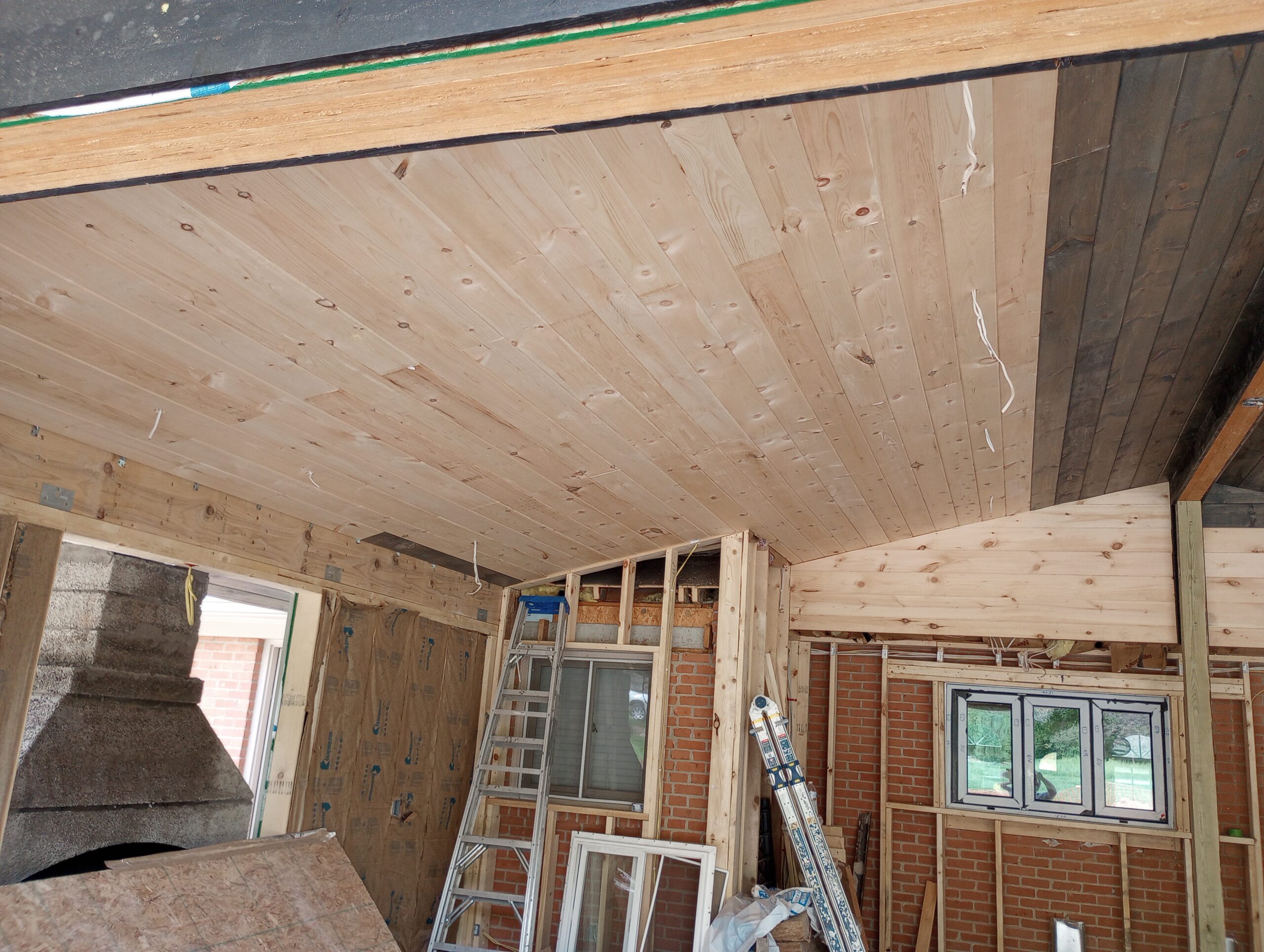
How to Tell If Your Home Needs a Rewiring: Warning Signs and Solutions
Your home’s electrical wiring plays a crucial role in keeping your household powered and safe. However, like any other component of your home, wiring deteriorates over time and may become outdated or unsafe. Faulty or aging wiring can lead to electrical hazards, including power outages, appliance failures, and even house fires.
If you live in an older home or experience frequent electrical issues, it may be time to consider a full or partial rewiring. In this guide, we’ll discuss the key warning signs that indicate your home may need rewiring, the benefits of an updated electrical system, and what to expect during the rewiring process.
Why Rewiring is Important
Rewiring your home isn’t just about upgrading for modern convenience—it’s also about ensuring safety. According to the National Fire Protection Association (NFPA), electrical failures or malfunctions account for nearly 45,000 home fires in the U.S. each year. Many of these incidents are caused by outdated or deteriorating wiring.
The Benefits of Rewiring:
✔ Enhanced Safety – Reduces the risk of electrical fires and shocks.
✔ Improved Energy Efficiency – Modern wiring systems handle electricity more efficiently, reducing energy waste.
✔ Increased Home Value – Updated wiring adds value to your property, making it more attractive to potential buyers.
✔ Supports Modern Appliances – Older wiring systems may struggle with the electrical demands of modern technology and appliances.
✔ Ensures Compliance with Electrical Codes – Up-to-date wiring meets current safety standards and local building codes.
Now that we understand the importance of rewiring, let’s look at the key warning signs that indicate your home’s electrical system may need an update.
Warning Signs That Your Home Needs Rewiring
Frequent Circuit Breaker Trips
Circuit breakers are designed to protect your home from electrical overloads. If your breakers trip regularly, it could indicate:
- Overloaded circuits
- Faulty wiring connections
- Electrical panel issues
While occasional trips are normal, frequent tripping is a sign of an underlying problem that needs professional attention.
Flickering or Dimming Lights
Do your lights flicker when you turn on appliances like a microwave or vacuum cleaner? This could be a symptom of:
- Loose or deteriorating wiring
- Overloaded circuits
- Poor electrical distribution
Flickering lights should never be ignored, as they can indicate unstable electrical flow that may lead to a fire.
Burning Smell or Scorch Marks on Outlets
A persistent burning odor from outlets or the electrical panel is a serious warning sign. Look for:
- Scorch marks or discoloration on outlets or switches
- Warm or sparking outlets when plugging in devices
- Buzzing or crackling sounds near outlets
If you notice any of these signs, turn off power to the affected area immediately and contact a licensed electrician.
Two-Prong or Non-Grounded Outlets
Older homes may still have two-prong outlets, which lack proper grounding. Without grounding, your home is more vulnerable to:
- Electrical shocks
- Power surges damaging appliances
- Increased fire risks
Upgrading to three-prong outlets with proper grounding improves safety and ensures compatibility with modern electronics.
Outdated Wiring Materials (Knob-and-Tube or Aluminum Wiring)
If your home was built before the 1970s, it may have outdated wiring materials that pose risks:
- Knob-and-Tube Wiring (Pre-1940s): Does not support modern electrical loads and lacks grounding.
- Aluminum Wiring (1960s-1970s): Prone to overheating, increasing fire risks.
If your home has either of these wiring types, rewiring is strongly recommended for safety and efficiency.
Electrical Shocks from Outlets or Switches
Do you experience small shocks when plugging in appliances or touching light switches? This can indicate:
- Faulty wiring
- Poor grounding
- Loose electrical connections
While minor shocks may seem harmless, they could be signs of a larger issue that needs professional inspection.
Overuse of Extension Cords or Power Strips
If you rely heavily on extension cords or power strips, it may indicate that your home doesn’t have enough outlets. This can lead to:
- Overloaded circuits
- Increased fire risks
- Tripping hazards
Upgrading your wiring and installing additional outlets is a safer long-term solution.
What to Expect During a Home Rewiring Project
Rewiring a home is a significant project that requires planning, time, and investment. Understanding the process can help you prepare for what’s involved.
Initial Electrical Inspection
A licensed electrician will:
- Assess the age and condition of your current wiring
- Identify potential hazards or code violations
- Recommend a rewiring plan based on your home’s needs
Cost Considerations
The cost of rewiring depends on:
- Home size – Larger homes require more materials and labor.
- Extent of rewiring – A full-home rewiring costs more than upgrading specific circuits.
- Accessibility of wiring – If walls must be opened, costs increase.
Rewiring Process Timeline
- Planning & Inspection: 1-2 days
- Permits & Approvals: Varies by location
- Rewiring Work: 5-10 days (depends on home size)
- Final Inspection & Testing: 1-2 days
If your home is occupied during the process, electricians may work room-by-room to minimize disruptions.
How to Maintain a Safe Electrical System
Even if your home has been recently rewired, regular maintenance helps prevent future problems.
Schedule Routine Electrical Inspections
Have a licensed electrician inspect your wiring every 3-5 years, especially if your home is over 40 years old.
Avoid Overloading Circuits
- Plug large appliances directly into outlets.
- Use smart power strips with built-in surge protection.
Test GFCI Outlets Monthly
Ground Fault Circuit Interrupter (GFCI) outlets automatically shut off power if they detect moisture or an electrical fault.
- Press the “test” button monthly to ensure they are working.
Upgrade Your Electrical Panel if Needed
If your panel is over 25 years old, it may not meet modern safety standards. Consider upgrading to a 200-amp panel for better energy efficiency.
When to Call a Professional Electrician
While homeowners can handle minor electrical tasks, major wiring work should always be left to a licensed electrician.
Call an electrician if you experience:
✔ Frequent breaker trips or flickering lights
✔ Burning smells or warm outlets
✔ Outdated two-prong outlets
✔ Electrical shocks from switches or appliances
Professional electricians ensure that rewiring is done safely, up to code, and with minimal disruption to your home.
Energy Efficiency Benefits of Rewiring Your Home
One of the often-overlooked advantages of upgrading your home’s electrical wiring is the improvement in energy efficiency. Outdated wiring can waste energy, increase your electricity bills, and put unnecessary strain on your home’s electrical system. By rewiring, you can enhance your home’s efficiency and reduce long-term costs.
How Old Wiring Wastes Energy
- Voltage Drops: Older wiring systems struggle to maintain consistent voltage, causing appliances to work harder and consume more power.
- Heat Loss: Faulty or deteriorated wiring can generate excess heat, leading to energy loss.
- Inefficient Circuit Distribution: Older homes weren’t designed for modern power demands, leading to overloaded circuits and energy waste.
How Rewiring Improves Energy Efficiency
- Better Conductivity: Modern copper wiring offers superior conductivity compared to older aluminum or knob-and-tube wiring, reducing energy loss.
- Optimized Circuit Design: New wiring ensures that high-demand appliances are on dedicated circuits, preventing overload and enhancing efficiency.
- Smart Electrical Panels: Newer panels can include smart monitoring systems that help track energy consumption and improve efficiency.
Additional Ways to Maximize Energy Efficiency
- Install LED lighting and energy-efficient appliances when upgrading your wiring.
- Add smart home technology, like programmable thermostats and smart outlets, to optimize electricity usage.
- Ensure your home’s insulation and ventilation are efficient to reduce heating and cooling power demands.
By investing in rewiring, you’re not only ensuring safety but also saving money on electricity bills and reducing your carbon footprint.
Choosing the Right Electrician for Your Rewiring Project
Rewiring your home is a complex and high-stakes project that requires a skilled, licensed professional. Choosing the right electrician is essential to ensure the job is completed safely, up to code, and within budget.
Qualities to Look for in an Electrician
- Licensed and Insured: Ensure the electrician holds the proper certifications and insurance to protect your home and investment.
- Experience with Older Homes: If you’re rewiring an older home, work with an electrician who specializes in handling historical or aged electrical systems.
- Knowledge of Electrical Codes: They should be familiar with the latest National Electrical Code (NEC) standards and local building regulations.
- Positive Reviews and References: Check online reviews and ask for references from past clients to verify their reliability.
Questions to Ask Before Hiring
- How many rewiring projects have you completed in older homes?
- Will you handle permits and inspections for the project?
- Can you provide a detailed cost estimate and timeline?
- Do you offer a warranty on your work?
Hiring the right electrician ensures a smooth, hassle-free rewiring process and long-term electrical safety for your home.
By prioritizing professional expertise, energy efficiency, and safety, you can enjoy a modernized electrical system that enhances your home’s functionality and value.
Prioritize Electrical Safety
If your home is showing signs of outdated or faulty wiring, don’t wait until an emergency occurs. Rewiring your home improves safety, efficiency, and long-term reliability.
By scheduling an electrical inspection and working with a licensed electrician, you can identify potential hazards and make informed decisions about upgrading your home’s electrical system.
Contact a professional electrician for an inspection and ensure your home’s electrical system is safe and up to date!



